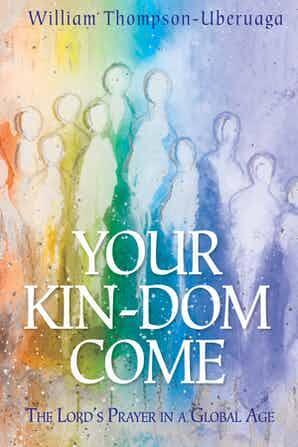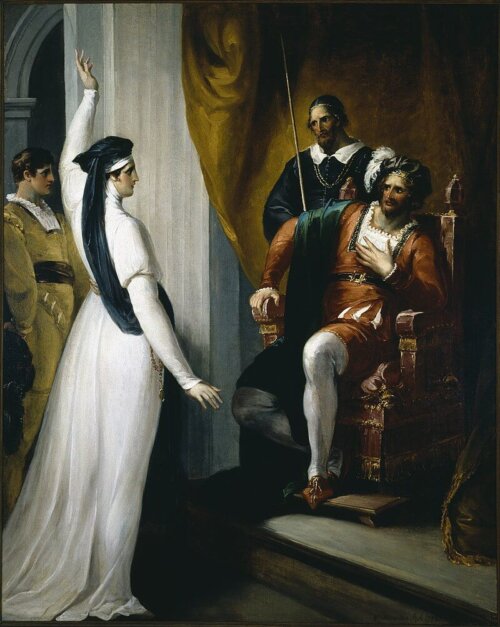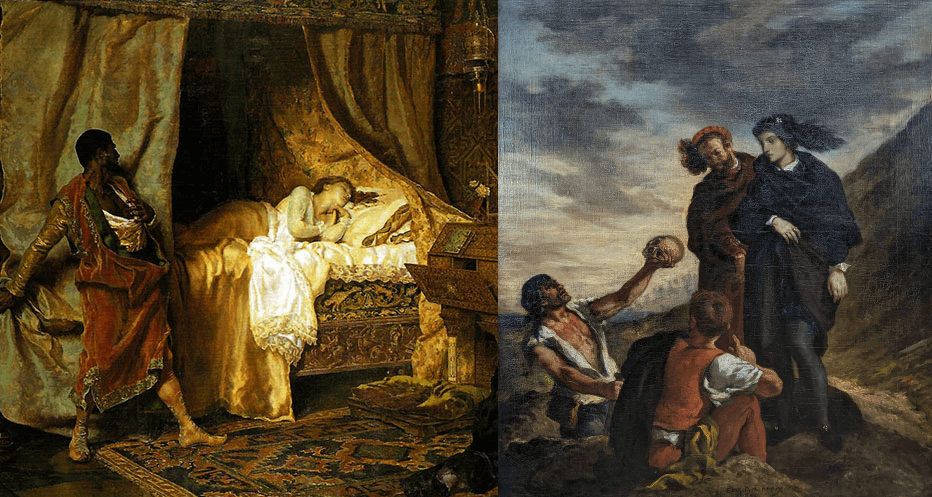Your Kin-Dom Come: The Lord’s Prayer in a Global Age

Your Kin-Dom Come: The Lord’s Prayer in a Global Age. William Thompson-Uberuaga. Eugene, OR: Cascade Books, 2018.
Your Kin-Dom Come is a deep spiritual, theological and philosophical meditation on the Christian prayer known as the “Our Father” or the “Lord’s Prayer.” It is analyzed from Christian, ecumenical, postcolonial and cosmic perspectives. The words of the prayer come from Jesus Christ, as remembered (with some differences) by the gospel writers of Matthew and Luke in the New Testament. It is hard to overestimate the significance of this prayer, since it has been essential from the beginning to the public and private prayer-lives of Christians. But the prayer has been cherished for different reasons throughout ecclesial history. For many, it has been understood as a summary of the good news of Jesus Christ: the loving, forgiving and transforming Kingdom of God (the Father) has become incarnate in history and the cosmos, through the Son of God, and has fostered deep personal intimacy with humanity and has lovingly granted divine deliverance from evil and death. Additionally, it contains inchoate articulations of the fundamental Christian doctrines of the Trinity, incarnation and sanctification. Yet, it is essentially a prayer. The “you” petitions that hallow (glorify) God’s name and yearn for the coming of the kingdom of God and the “we” petitions that request the divine help with daily bread, forgiveness and deliverance from evil. This prayer’s structure paradigmatically shows the vertical and horizontal dimensions of the spiritual life: love of God and love of neighbor. And the prayer inculcates the added sense of being a son or daughter of God or brother or sister of Jesus. Consequently, these texts have received significant attention throughout the intervening centuries by the church fathers, scholastics, reformers, mystics, the laity, scholars and even atheists like Ernest Hemmingway. Hence, there has been no shortage of commentaries on the Lord’s Prayer.
This gives rise to an important question. As Thompson-Uberuaga himself wonders, can anything really “new” be said about this most venerable of prayers? The answer to this question is in the affirmative. He is able to achieve this Herculean task through drawing out of the “surplus of meaning” of the prayer. The surplus of meaning is gained when it is read from the current perspectives of globalization, postmodernism and neo-cosmocentrism and when tutored by the basic insights of what he calls “primary experience”. The distinctive contribution of Thompson-Uberuaga’s book is the analysis of the “kin-dom” and how the Lord’s Prayer can gather the reader up into its energy and vibrantly connect the person to the divine. In the end, he is claiming that one comes not to just “know about” God the Father (or the divine mystery) but actually to “know” God the Father (or the divine mystery) through deep levels of participation in history, culture, religion and the universe. The symbols and texts (myths) arising from primary experience are essential in the process, which gives a healthy place to the role of imagination and moves toward contemplative thought beyond just the literal meaning. The divine mystery “lures” people in a non-competitive way to the universal. In the end, this is a human journey and not just the special preserve of the pious religious believer, though, different people will have different levels of participation.
There are many important existential and theological issues emerging in the text since the prayer is a “port of entry” into the infinite divine mystery. The universal relates to all things and the incarnation (God becoming human in Jesus Christ) roots the process in the soil of history and society. As the human being responds to the divine Lure (holy attraction to the good, the true, the beautiful and the just) , there is an ongoing challenge to find balance between the human experiential poles of heaven and earth, elevation and conversation, divinity and humanity, good and evil, history and eschatology. In other words, the tensions of the infinite and the finite. However, there is not much space in a short review for detailed treatment of all of these trajectories. Instead, one topic for analysis will have to suffice—the kin-dom. This is Jesus Christ’s central message and the prayer itself unites one with this graced event of the coming of the kin-dom or God’s reign. Christ teaches his followers how to pray for this eventuality: “Our Father who is in heaven, hallowed be your name, your kingdom come, your will be done on earth as it is in heaven.” Thompson-Uberuaga meditates at length on these words about the God of heaven (universe) and what the divine will might mean given current circumstances. The discussion about the kin-dom is fresh and particularly fruitful for those spiritually inclined because it connects so directly with contemporary global and environmental concerns, as well as, the added postmodern appreciation of allegory. For Thompson-Uberuaga, the symbol of the “Kingdom of God” is best translated as the “kin-dom” of God. The change from “king” to “kin” denotes the end of hierarchy and the calculating mind and the rise of the reign of companionship/community and the contemplative mind. This neologism avoids the unfortunate association of dominating power expressed by most kingdoms throughout history and seems wide enough to embrace the entire human being and sentient being (animal) family and the cosmos.
For Thompson-Uberuaga, the kin-dom is a decolonized phenomenon which means “letting go” of control and allowing things to emerge freely and naturally. The prayer can “deprivatizes” the reader, so as to see the socio-political and cosmic dimensions of experience and the need to eschew individualism, elitism, consumerism, domination and the throw-away mentality. This decolonizing frees one from any inflexible and limited ideologies about God, gender, culture, sexual orientation, religion, ethnicity, and class. This kin-dom gives rise to a new kind of community based on the inclusive love of God and the radical equality of all people. The kin-dom is a new kind of inclusive relatedness that breaks down barriers and blinders. In short, Thompson-Uberuaga is arguing that prayers, like the Lord’s Prayer, put one in touch with this divine mystery of inclusive love and can help to make it actual in the world, in one’s heart, and in the future. He even hazards to say that Jesus’ famous statement that “In my Father’s house there are many dwelling places” deserves to become a grounding principle in today’s biblical studies. The “surplus of meaning” of this text seems to imply that there are many ways to relate to God and be united with one another in the same eternal kingdom.
In conclusion, this rich and multilayered text is highly recommended for general readers and scholars alike. While quite accessible, it must be read slowly and meditatively because he is not just talking about the divine mystery. He is endeavoring to be a guide to participation in its sublime depths. For those who are familiar with Thompson-Uberuaga’s work over the past forty years, one will see many familiar themes: spirituality and Christology, experience and theology, saints and mystics, and an ecumenical sense of Christianity. All of which begins with and returns to the biblical narrative, but tutored with a “second naiveté.” However, this is the text of a mature scholar, so after a lifetime of work he has brought his ideas about the divine mystery to a new levels of synthesis and development. This comes through quite well with his understanding of the uber-concept of “context.” The postmodern thinker of today may make much about the particulars of historical and cultural context. As a follower of the phenomenological work of Martin Heidegger, Thompson-Uberuaga amply attends to these kinds of historical or time considerations. However, he is still very much a follower of the transcendental work of Karl Rahner and is convinced that human beings are only “conditioned,” but not “determined” by culture. This is where his allegiance to experience and revelation come into play: the universal breaks/emerges into/from history. His many references to the “primary experience” of the divine, society/history/religion and nature shows how he sees a transcendent horizon opening up onto vistas beyond just the immediate and particular. His several allusions to the role of the cosmos or “space” also bring some groundbreaking opportunities to think outside the confines of postmodernism. Additionally, this focus on experience connects with the indispensable place of the world religions for the human quest. Thompson-Uberuaga states that all the religions of the world are fashioning analogous symbols of equivalent experiences of the divine and their prayers are echoes of the divine mystery. He seems to be saying that this kind of “ecumenical” convergence points to the “universal.” In the end, then, the confluence of the wide notion of experience, the pivotal place for prayer/contemplation, and the importance of religious symbols, give the book a hopeful vision for the future of ecumenical and inter-religious spirituality. In the most capable hands of Thompson-Uberuaga, God seems to have grown up!




